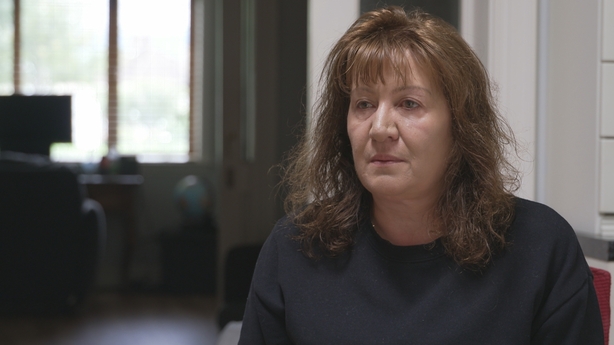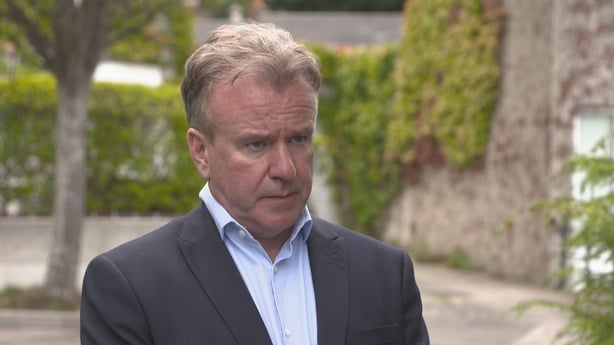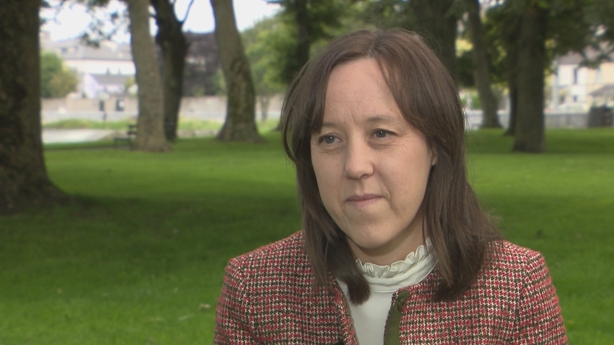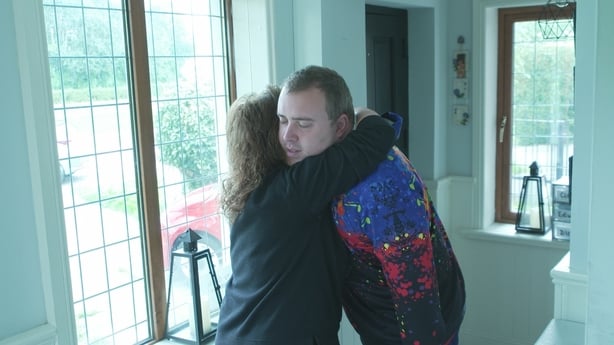There have been calls for the HSE and the Government to reduce waiting lists for those seeking access to respite services.
An increasing number of older parents are now the primary carers of adult children with intellectual disabilities and autism.
Recent figures from the Health Research Board show that more than 1,300 people require overnight respite.
Edward Moore is 30 years old. He is autistic and loves airplanes. When we visit his home, he is waiting to be picked up for his day service.
"Keep fit" is on the timetable that day. On other days, it's activities like swimming and art.
His mother Angelina wants Edward to be independent through increased respite and residential services. Despite continuous requests to the HSE, she has been unsuccessful.
There is a waiting list of 500 people for residential services in the HSE Dublin South, Kildare & West Wicklow area. Edward is not on that list.
His weekend overnight respite was also reduced from six weekends a year to two. This has affected Edward, who says he is lonely.
After a number of tough years due to the pandemic, he has little to look forward to.

In a cruel twist of fate, the day service he attends has rooms that could be used for respite, but without funding, they lie empty.
Angelina's health has deteriorated. Due to a recent onset of vertigo, along with other health issues, she is in fear of falling or having to go to hospital.
Those ailments have resulted in constant questioning and worry on Edward’s part about her health.
A cold or flu heightens his anxiety. She can wake up at 3am with his arrival in her room to see if she's okay.
Angelina is among hundreds of parents fighting for respite across the country.
Independent Senator Tom Clonan is inundated with people contacting him in desperation.
"I'm being emailed and messaged through social media from carers all over the country with no respite, no supports, there's nothing for them," he said.
He points the finger firmly at HSE's Disability Services.
"In my experience the funding is there, the money is there, but increasingly I'm finding people in the Health Service Executive and elsewhere, who are refusing to administer and fund these packages," he said.

In a statement, the HSE said it was "aware of the extent of the needs of those who are waiting to access respite services, as well as those who need more respite than they are currently accessing.
"The level of service being provided has increased in each of the past two years and additional services are being developed in 2023, supported by a commitment from Government with additional funding."
However, the Government has dragged its feet in this area over the last ten years.
While the process of dismantling congregated settings for people with intellectual disabilities was largely welcomed, there was no adequate plan put in place for residential support in communities.
Last year, the National Federation of Voluntary Providers reported that there were more than 1,500 families where the family carer was over the age of 70. More than 450 of those were over the age of 80.
These are people that require help from the State, even if they are too exhausted or worn down to shout about it.
While the Government undertook a disability capacity review to examine what was required to meet service requirements, it has not published the action plan for that review, which makes it difficult to assess services most in need.
In the last two weeks, ministers Anne Rabbitte and Roderic O'Gorman announced that they had created an "action plan" as a result of the capacity review.
The problem is there is no confirmed date of publication for that plan. However, the providers of respite services say it needs to be made public before the Budget.
In the meantime, residential support is being provided on an emergency basis, according to Alison Harnett, who is CEO of the National Federation of Voluntary Providers.

Last year, just 43 emergency places were assigned in the Budget.
Ms Harnett says no one can understand the lack of urgency from Government while families struggle on the ground.
"We really don't understand that there isn't an urgency around this. This has been going for several years and the capacity review report was due over a year ago, so it's something that needs a very urgent focus from the whole of Government," she said.
The HSE has pointed out that in each year, including this year, it has worked on the basis that all respite funding is to be used for the provision of the range of respite services.
"This includes the scope in each Community Health Organisation area to use any savings arising from the timing of the development of services for alternative respite options to maximise the use of the resources available to meet the needs of children, adults and their families," it said.
It's questionable whether a new approach is needed.
In the meantime, parents like Angelina are left to worry about dying and hoping their children get a place in residential care.

Without respite for Edward, Angelina does not foresee herself living into her 80s.
"I love my son, and I give anything with a heart-and-a-half, but I know I'm going to pass, and I know he knows it.
"He's looking for reassurance, 'Mammy who's going to be there for me?' And I want to be able to say, look Edward, Mammy's kept her promise."






